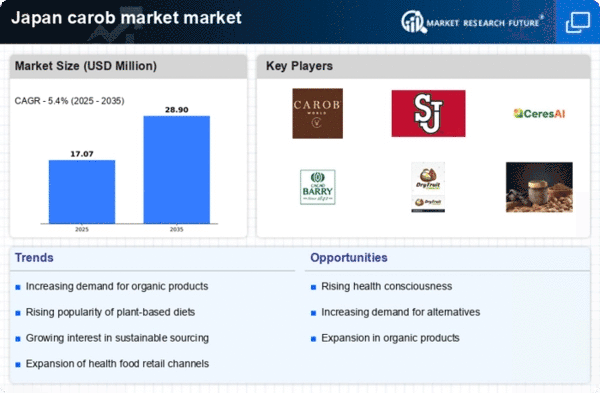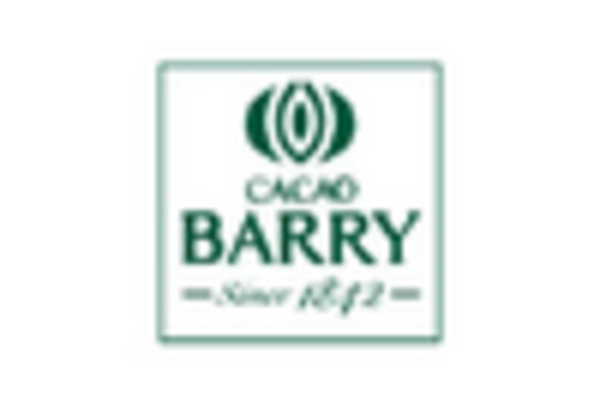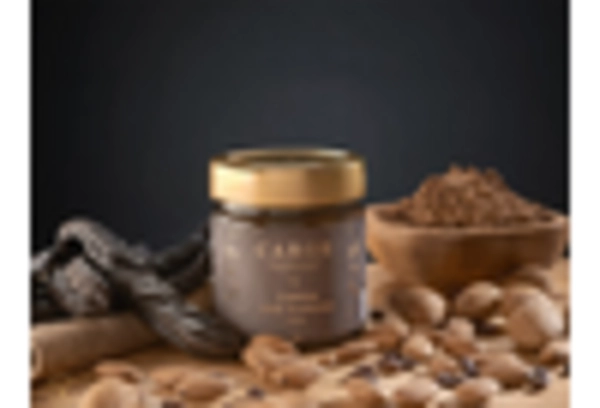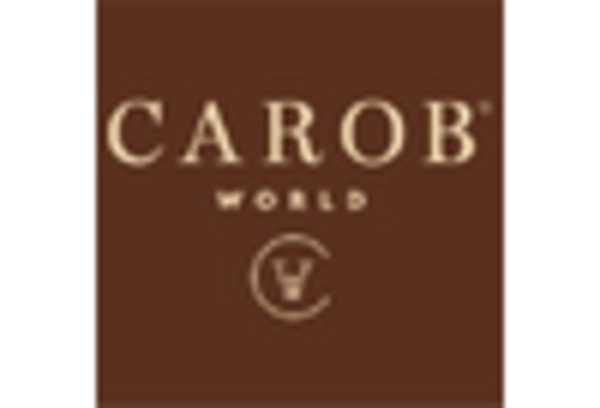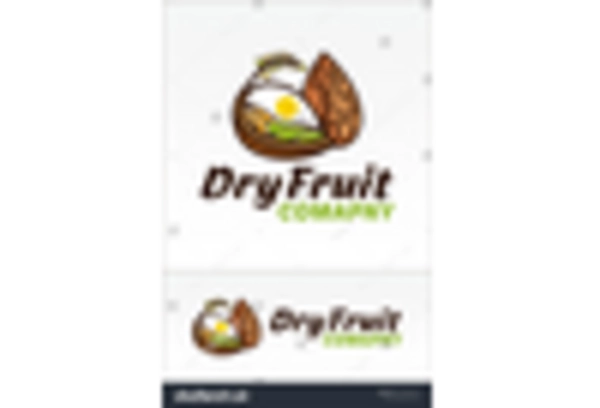Innovative Product Development
Innovation within the food industry plays a crucial role in shaping the carob Market in Japan. Manufacturers are actively exploring new product formulations that incorporate carob, such as gluten-free snacks, protein bars, and dairy alternatives. This trend is indicative of a broader movement towards functional foods that offer health benefits. Recent market analysis suggests that the introduction of innovative carob-based products could capture a significant share of the health food segment, which is expected to reach a valuation of $1 billion by 2026. Such developments may enhance consumer interest and drive growth in the carob Market.
Expansion of Health Food Retailers
The proliferation of health food retailers across Japan significantly impacts the carob Market. These specialized stores are increasingly stocking carob-based products, thereby enhancing their visibility and accessibility to consumers. The rise of health food retailers aligns with the broader trend of consumers gravitating towards organic and natural products. According to recent statistics, the number of health food stores in Japan has increased by over 15% in the past three years. This expansion not only provides a platform for carob products but also educates consumers about their health benefits, potentially leading to increased sales and market penetration.
Sustainability and Ethical Sourcing
Sustainability concerns are increasingly shaping consumer choices in Japan, impacting the carob Market. As consumers become more environmentally conscious, they tend to favor products that are sustainably sourced and produced. Carob, often cultivated in arid regions with minimal water requirements, aligns well with these sustainability values. Recent reports suggest that over 70% of Japanese consumers are willing to pay a premium for sustainably sourced products. This shift in consumer behavior may encourage manufacturers to highlight the sustainable aspects of carob in their marketing strategies, potentially enhancing its appeal and market share.
Increased Awareness of Dietary Fiber
The growing awareness of dietary fiber's health benefits is influencing the carob Market in Japan. Carob is recognized for its high fiber content, which appeals to consumers seeking to improve digestive health and overall well-being. As dietary fiber becomes a focal point in nutrition discussions, carob's profile as a fiber-rich ingredient is likely to rise. Recent surveys indicate that approximately 60% of Japanese consumers are actively seeking foods high in fiber. This trend may lead to increased incorporation of carob in various food products, thereby expanding its market presence and driving sales.
Rising Demand for Natural Sweeteners
The carob Market in Japan experiences a notable increase in demand for natural sweeteners, driven by a growing consumer preference for healthier alternatives to refined sugars. As health-conscious individuals seek to reduce sugar intake, carob, with its naturally sweet flavor and low glycemic index, emerges as a favorable option. Recent data indicates that the market for natural sweeteners in Japan is projected to grow at a CAGR of approximately 8% over the next five years. This trend is likely to bolster the carob Market, as manufacturers increasingly incorporate carob into various food products, including snacks and beverages, to cater to this evolving consumer demand.


